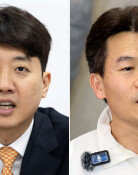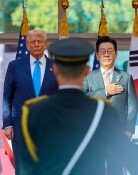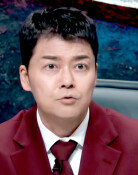[Focus] Financial, corporate restructuring urdent: survey
[Focus] Financial, corporate restructuring urdent: survey
Posted November. 27, 2000 09:21,
Seven experts out of ten took a skeptical view to the prediction that the nation¡¯s economy would hit bottom next spring and then rebound.
In addition, financial and corporate restructuring was deemed the most urgent task facing the Korean economy.
Also, the country¡¯s economy was forecast to struggle with a lower gross domestic product (GDP) growth in the 5% range and a high jobless rate of 5% next year. Unlike general people¡¯s worries, however, more experts viewed that there is a slim chance of a recurrence of the foreign currency crisis or an abrupt exodus of capital.
Those results came from a survey on ¡®Korea¡¯s economic outlook for next year and tasks to be solved,¡¯ which was conducted Sunday by Dong-A Ilbo of 50 economic experts engaged in the academic circles; state-run and private economic research institutions; large conglomerates and venture firms; foreign enterprises and financial institutions; and economy-related authorities.
Asked about the possibility of completing financial and corporate restructuring within next year, 74% or 37 respondents said ¡®low,¡¯ while 26% or 13 replied ¡®relatively high¡¯ and none answered ¡®very high.¡¯ Also, 70% of the surveyed thought it unlikely that Korean economy would hit bottom next spring, while 68% of them did not think that local venture firms should be enlivened again next year.
However, when asked about the chance of a recurrence of the foreign currency crisis, 92% said ¡®low,¡¯ while 8% replied ¡®high.¡¯
Asked about the possibility of capital outflow to foreign countries following the introduction of global taxation on income from financial transactions and partial guarantee of deposits and second-phase liberalization of foreign currency dealing, two in three experts or 66 percent said ¡°low.¡±
Asked to pinpoint the three possible stumbling blocks to become the nation¡¯s economic woes, 78 percent or 39 chose the insufficient financial and corporate restructuring, followed by labor disputes (29), frustrated consumption and investment (22), political strife (17) and the lame duck phenomenon and policy failures (10) in that order.
As for the two most urgent tasks of the nation¡¯s economy next year, a whopping number of 42 or 84 percent cited a bold restructuring, while 19 stressed the need for harmony between the government, management and labor, 13 called for the restoration of psychology for business activities and 12 chose the halt to the political feud.
The experts predicted a growth rate of 5.3 percent for next year, inflation of 3.9 percent, and unemployment rate of 5 percent, observing that the growth rate will fall, while prices and unemployment will go up.
However, they observed that the average KOSPI (Korean Composite Stock Price Index) will rise to the level of 642 points, higher than that of the present, and the average foreign exchange rate will not rise that sharply, maintaining the level of 1,167 won per dollar.







